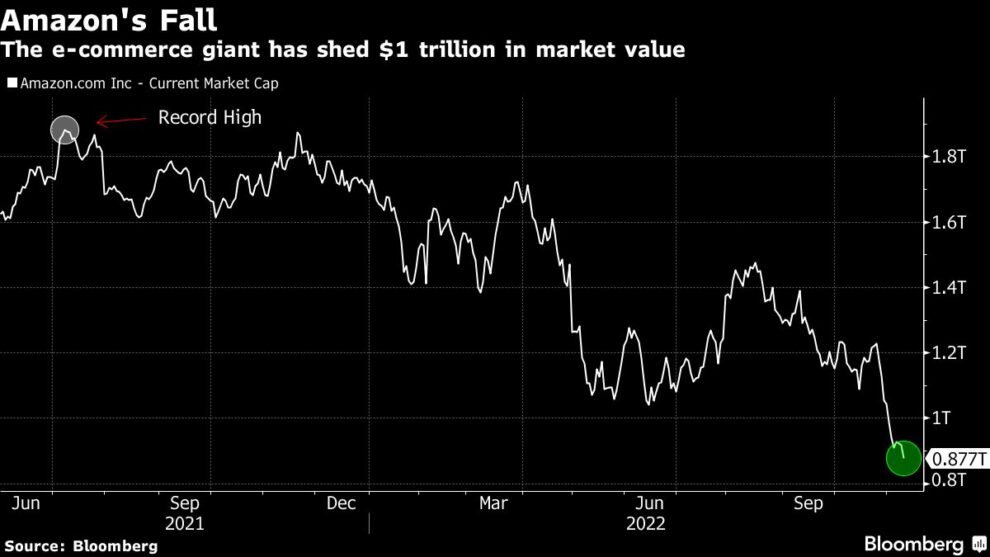
(Bloomberg) — Amazon.com Inc. is the world’s first public company to lose a trillion dollars in market value as a combination of rising inflation, tightening monetary policies and disappointing earnings updates triggered a historic selloff in the stock this year.
Most Read from Bloomberg
Shares in the e-commerce and cloud company fell as much as 4.6% on Wednesday, pushing its market value to about $878 billion from a record close at $1.882 trillion on July 2021. Amazon and Microsoft Corp. were neck-and-neck in the race to breach the unwelcome milestone, with the Windows software maker close behind after having lost $900 billion from a November 2021 peak.
While technology and growth stocks have been punished throughout the year, fears of a recession have further dampened sentiment in the sector. The top five US technology companies by revenue have seen nearly $4 trillion in market value evaporate this year.
The world’s largest online retailer has spent this year adjusting to a sharp slowdown in e-commerce growth as shoppers resumed pre-pandemic habits. Its shares have fallen almost 50% amid slowing sales, soaring costs and a jump in interest rates. Last month, Amazon projected the slowest revenue growth for a holiday quarter in the company’s history as shoppers reduce their spending in the face of economic uncertainty. That sent its market value below $1 trillion for the first time since the pandemic-fueled rally in tech stocks more than two years ago.
–With assistance from Divya Balji and Tom Contiliano.
Most Read from Bloomberg Businessweek
©2022 Bloomberg L.P.












